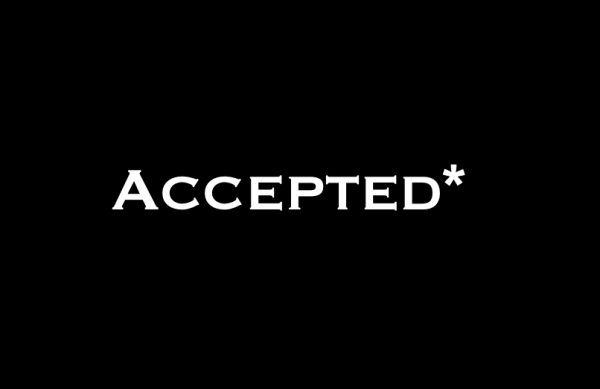Published on August 25, 2022

Lea el artículo en español
DENVER – The Mayor’s Office of Social Equity and Innovation needs a stronger foundation and more support from the top to ensure effective and lasting outcomes for citywide equity initiatives, according to a new audit from Denver Auditor Timothy M. O’Brien, CPA. After poor production of evidence throughout the audit process and disingenuous responses to audit work, significant concerns remain about the future of social equity efforts.
“Our audit work is intended to examine how agencies could be more efficient and effective in their service of the public, not to list their accomplishments for them,” Auditor O’Brien said. “This audit was nothing beyond the norm for any assessment we might do, and no city agency is above independent assessment. I am disappointed office leadership and even the mayor have so thoroughly misunderstood how audits work and how they have misrepresented the integrity of our research and findings.”
Our audit team looked at whether the Mayor’s Office of Social Equity and Innovation effectively designed, implemented, and evaluated its initiatives to fulfill its goal of increasing social equity and minimizing institutional, structural, and systemic racism within City and County of Denver government.
We found the office needs a detailed strategic plan, clearer authority when working with other city agencies, and more support from the Mayor’s Office.
The Mayor’s Office of Social Equity and Innovation was established by a mayoral executive order in June 2020 after several years of planning. The office oversees city agencies’ efforts to evaluate Denver’s systems, policies, and practices to increase equity and eliminate racial and social injustice.
However, the office lacks a complete program design to document its goals and how it will use resources efficiently and effectively.
Our audit team found six different mission statements and two short strategy documents that lacked detail, clear missions, and measurable objectives. Management should develop a detailed and consistent strategic plan — including defined metrics to assess success or future needs — as required in the executive order.
Additionally, we found the executive order establishing the Mayor’s Office of Social Equity and Innovation is vague about the office’s authority to enforce requirements for city agencies. The office cannot force agencies to create racial equity action plans or compel them to participate in equity training. Staff reported being “stonewalled” when trying to work with some agencies.
As a result, several city agencies are not complying with the executive order. They have not signed citywide equity commitments, created agency-level equity plans, or received training on social equity, race and social justice.
“This office needs strong leadership and clear support from the mayor’s team to get back on track after the loss of so much institutional knowledge,” Auditor O’Brien said. “Due to leadership turnover and a lack of clear direction, the office doesn’t have the resources it needs to support diversity, equity, and inclusion citywide.”
Staff in the Mayor’s Office said they were not aware of the office’s need for more help to gain agencies’ compliance nor were they aware of any requests to be more involved. While the executive order should have been enough to get mayoral agencies to comply, more input and support from the top may have helped reenforce city agencies’ obligations.
The lack of documented program design, the absence of formal policies and procedures, and the undefined roles and responsibilities for staff occurred because previous office leaders did not prioritize creating them and did not document their knowledge or vision for the office before leaving their position. The first chief equity officer left their position in June 2021, and their interim replacement left in September. The current chief equity officer has had their position since October.
After the initial office leadership left the city, a lack of clearly defined roles and responsibilities led to some tension and confusion between new and existing staff. Some employees never received direction on their day-to-day duties beyond the broad job description by which they were hired.
Office staff told our team they rely on the “vision” and the experience of more tenured colleagues, as well as their own “emotional intelligence” to accomplish day-to-day work.
“This is a very new office with a high amount of recent turnover in leadership,” Auditor O’Brien said. “I hope this audit will incentivize current leadership to begin building a stronger framework that will ensure this office’s important work has real impact and lasts in the city for a long time to come.”
Because the office was created by an executive order, there is a risk that future mayors could end the program or revoke the order. We found no documentation that the Mayor’s Office or social equity staff have started efforts to send a proposed ordinance through the City Council process, as they originally intended to do when the executive order was signed.
The executive order also needs an update to clarify what the required “citywide equity scans” are, how the office should be involved in the agency budget process, and to reflect current processes.
Because the Mayor’s Office of Social Equity and Innovation does not have the foundation for effective governance and lacks sufficient support, it cannot ensure city agencies comply with the executive order. Strategic goals and objectives should be the first step as staff work to bring organization and clarity to their work citywide. The office also needs a defined communication plan to ensure clear and consistent direction within the office and with other city agencies to guide the city’s racial and social justice work.
Finally, after we finished our audit work, our team discovered a previously undisclosed consulting contract the city had with the former interim chief equity officer. The contract related to work last fall and winter to develop certain necessary strategic goals and objectives for the Mayor’s Office of Social Equity and Innovation. Because city officials neglected to disclose this to us during our audit, we could not assess whether this contract would help the office get on the right track.
“At the end of the day, the city’s social equity office should benefit from frank and independent recommendations to help them move forward in a positive way,” Auditor O’Brien said. “I wish they had been more forthcoming during the audit process and I hope they will embrace the spirit of improvement more than they indicated in the meeting of the Audit Committee.”

AUDITOR TIMOTHY O’BRIEN, CPA
Denver’s Auditor
Denver Auditor’s Office
201 W. Colfax Ave. #705 Denver, CO 80202
Email: auditor@denvergov.org
Call: 720-913-5000
Follow us on Facebook Connect with us on Twitter
Read our Social Media Policy Here






















Discussion about this post